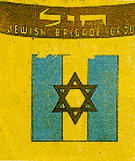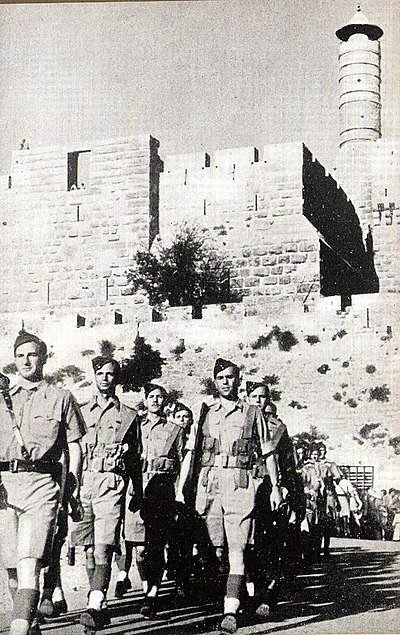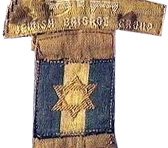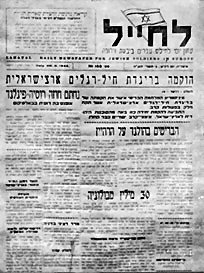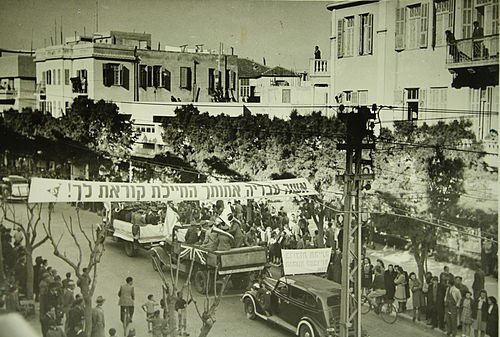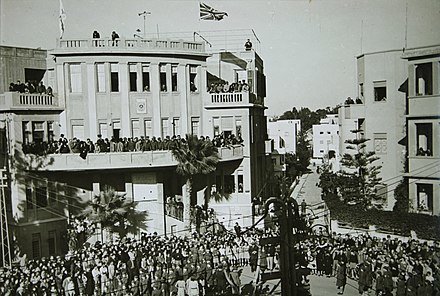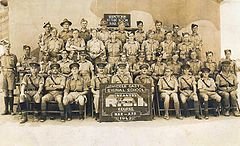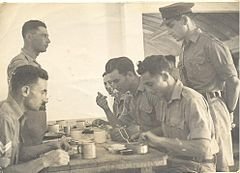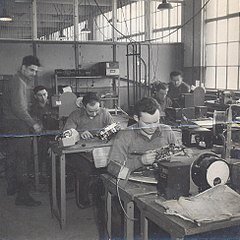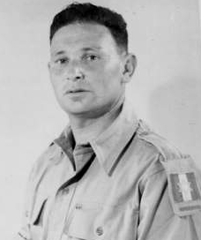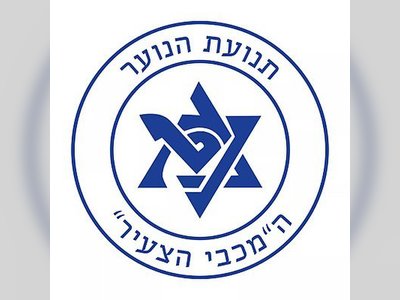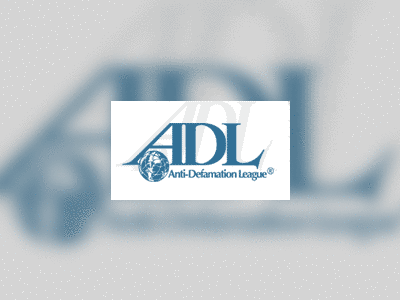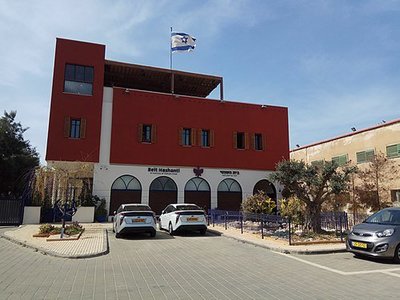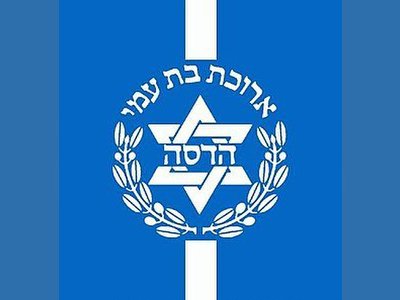The Jewish Brigade: A Documentary Exploration
The Jewish Brigade, officially known as the Jewish Brigade Group and also referred to as the "Jewish Fighting Division" or simply "Habrigada," was a unique military unit within the British Army during World War II. Comprised entirely of Jewish soldiers, mainly from the Jewish settlements in Palestine, it was formed as part of the Jewish community's volunteering efforts to serve in the British Army.
The British decision to create the brigade was made in July 1944, towards the end of World War II, with prominent figures like Moshe Sharett, head of the Political Department of the Jewish Agency, playing a key role in its establishment. The creation of the Jewish Brigade held significant national importance, as it marked the first British military unit in World War II composed exclusively of Jewish soldiers from Palestine, bearing Hebrew insignia and Zionist symbols, actively engaging in the fight against Nazi Germany.
The Jewish Brigade actively participated in battles aimed at breaking the German defensive line in northern Italy, known as the "Gothic Line," as part of the Italian front of the Allied forces. At its peak, the brigade consisted of approximately 5,000 soldiers, accounting for over 13% of the total volunteers from the Jewish community in Palestine who served in the British Army, estimated at around 38,000 soldiers. The brigade operated on the frontlines from March 3, 1945, to April 25, 1945, engaging in combat for three intense weeks.
After the war in Italy and the defeat of the Axis powers, the Jewish Brigade continued its missions as part of the European military administration. Within this framework, they provided significant assistance to Holocaust survivors, organized their rescue and immigration to Palestine. Many of the brigade's commanders went on to serve in the Israel Defense Forces during the War of Independence, applying their combat and leadership experience gained in the brigade.
Background:
Throughout the war years, the leadership of the Jewish community, through the Political Department of the Jewish Agency, continuously pushed for the creation of an independent Hebrew fighting unit, reminiscent of the Jewish battalions formed during World War I. However, the British authorities consistently evaded fulfilling this request.
Jewish volunteers from Palestine were sent to serve in various British units, including the Jewish Palestine Regiment, alongside Arab volunteers, but never as a distinct unit with their own symbols and Hebrew identity. It was only in 1944, as the tide of war shifted, that the British finally agreed to establish the "Jewish Brigade."
Structure of the Brigade:
The Jewish Brigade was composed of three infantry battalions, formed primarily from existing Jewish units that had been serving within the British Army since the early stages of the war. The main units included:
The soldiers were predominantly from Palestine, initially numbering 2,500 but eventually reaching 5,000. They were initially stationed at the "Borg El Arab" camp near Alexandria, Egypt, where they organized into a cohesive unit. From Egypt, they sailed to Italy in November. The brigade was part of the Eighth Indian Infantry Division, which was a component of the Fifth Corps operating in the Italian theater of World War II.
One of the brigade's notable officers was Captain Edmund Leopold de Rothschild.
The brigade was commanded by Brigadier Benjamin LeRoy, a Canadian-born Jew with a general background in Judaism, who played a pivotal role in rehabilitating Holocaust survivors and preparing them for immigration to Palestine.
Official Declaration:
The official declaration of the Jewish Brigade's formation mirrored the decision-making process itself, fraught with political and strategic considerations. The Nazi propaganda machine attempted to portray Jews as the cause of the war's outbreak. Britain was concerned that the establishment of the brigade and the subsequent announcement could have negative repercussions. Nevertheless, the British eventually recognized the necessity of creating the Jewish Brigade as an independent Jewish unit.
British Prime Minister Winston Churchill, during a parliamentary session on September 28, 1944, stated:
"The government has decided to fulfill the request of the Jewish Agency for Palestine and to establish a Jewish Brigade that will actively participate in battles. There are many Jews serving in our army and the American army in various capacities. But it seems proper to me, indeed necessary, that a special unit of that race which has suffered indescribable torment from the Nazis should be represented as a distinct formation."
Five days after this declaration, President Franklin D. Roosevelt of the United States also approved the decision.
The National Institutions of the Zionist Movement saw the establishment of the Jewish Brigade as a fundamental step in training civilians for the future Israeli army. It also viewed it as a means to rescue Holocaust survivors and bring them to Palestine. Once the essential conditions for fighting under a national flag were met, the recruitment campaign gained momentum.
The brigade's flag featured the Star of David on a yellow background, and the unit's name was allowed to be used in Hebrew. The role of the National Institutions did not end with the brigade's establishment. The Jewish Agency appointed a body called the "Brigade Committee," responsible for liaising with the volunteers, providing them with educational and cultural programs, and encouraging the immigration of the remaining survivors from Europe to Palestine.
The Connection:
The connection between the Jewish soldiers who served in the British Army and the Jewish community in Palestine was facilitated through a network of military rabbis within the British Army. Over half of these rabbis came from Palestine and all were required to obtain approval from the Chief Rabbinate of Palestine and rabbinical ordination for their work from Chief Rabbi Yitzhak Isaac Halevi Herzog.
The military rabbis cared for the religious needs of the soldiers, although only a small portion of the soldiers strictly observed religious commandments. However, most soldiers attended communal prayers on High Holidays, listened to the rabbis during special assemblies, and sought assistance from the rabbis for social work as part of their duties as army chaplains. Significantly, after the war, many soldiers married European women rescued by the brigade, conducting hundreds of weddings in Europe for Holocaust survivors.
The Jewish Brigade represented a unique chapter in Jewish history, where Jewish soldiers from Palestine, driven by a strong sense of identity and a commitment to the Zionist cause, fought as a distinct unit within the British Army during World War II. Their contribution extended beyond the battlefield, as they played a vital role in the rescue and rehabilitation of Holocaust survivors, laying the foundation for the future Israel Defense Forces and the realization of the Zionist dream.
- הבריגדה היהודיתhe.wikipedia.org
